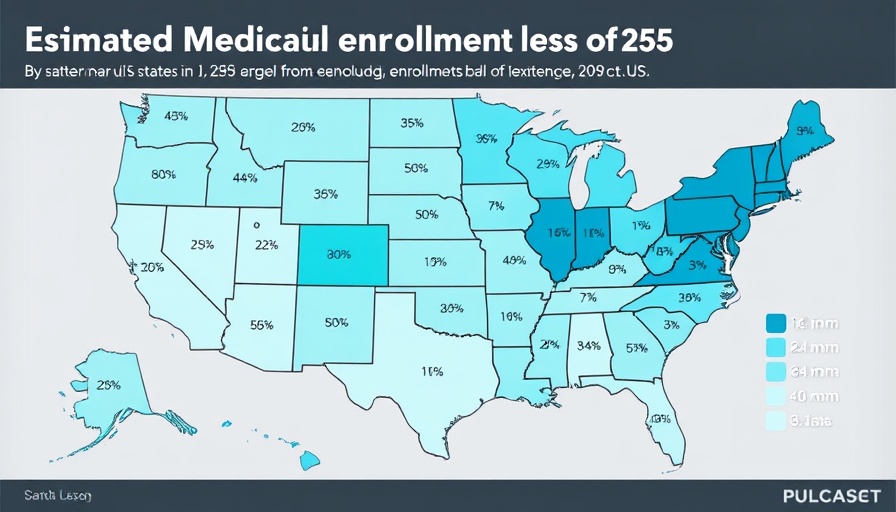
The Impact of Proposed Federal Medicaid Cuts on Citizens
In a stark fiscal shift, recent federal legislation aims to reduce Medicaid spending significantly, with the Congressional Budget Office (CBO) projecting a $793 billion decrease in the program. This new estimate not only threatens the availability of healthcare for millions but is predicted to push approximately 10.3 million individuals out of the Medicaid safety net, increasing the ranks of the uninsured by 7.8 million. Understanding these numbers might seem daunting, but it’s essential as they will likely affect families across the nation, especially those already vulnerable.
Understanding the Allocation of Cuts Across States
The One Big Beautiful Bill Act, recently passed by the House, serves as the inception point of these cuts, with tactics primarily involving new work requirements and hindrances to both initial enrollment and renewal processes. As states scramble to understand how these provisions will actually play out, the KFF analysis attempts to clarify and allocate these federal spending reductions on a state-by-state basis. Measuring how each state responds to these policy changes could lead to either increased or decreased enrollment losses than previously estimated.
A Human-Centric Approach to Medicaid Changes
Amid these looming challenges, individuals and families must remain informed about how these changes may directly impact their healthcare options. Notably, the proposed measures do not simply stem from economic forecasting; they represent real lives and communities at stake. Health policy should not be just about numbers; it reflects the very fabric of our communities and well-being.
The Path Forward: Decisions We Can Make Together
As citizens, it becomes increasingly important to advocate for health security and to understand the implications of legislative decisions. Engaging in community discussions, attending local town halls, and reaching out to representatives can lend a voice to those most affected by these cuts. Together, we can drive meaningful dialogue and potentially influence how these laws will roll out in our states.
Empower Yourself with Knowledge
By staying educated on these changes and how they may affect your community's health, you are taking the first steps toward advocacy. It matters how we respond to these shifts in healthcare provision; awareness is the first step to action!
 Add Row
Add Row  Add
Add 




Write A Comment